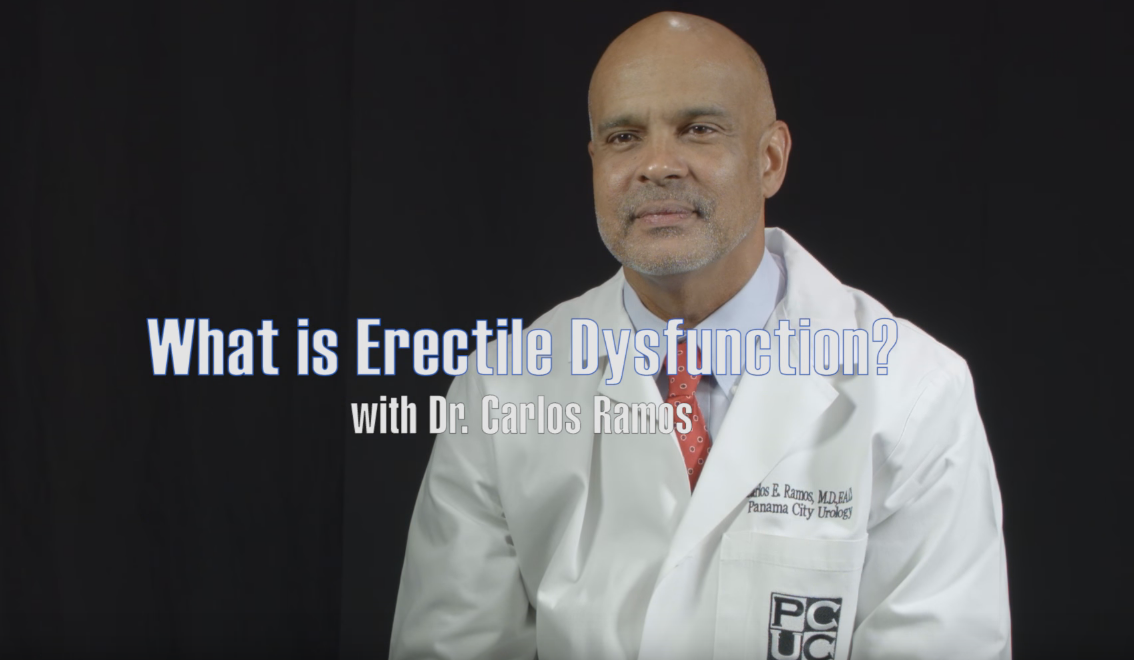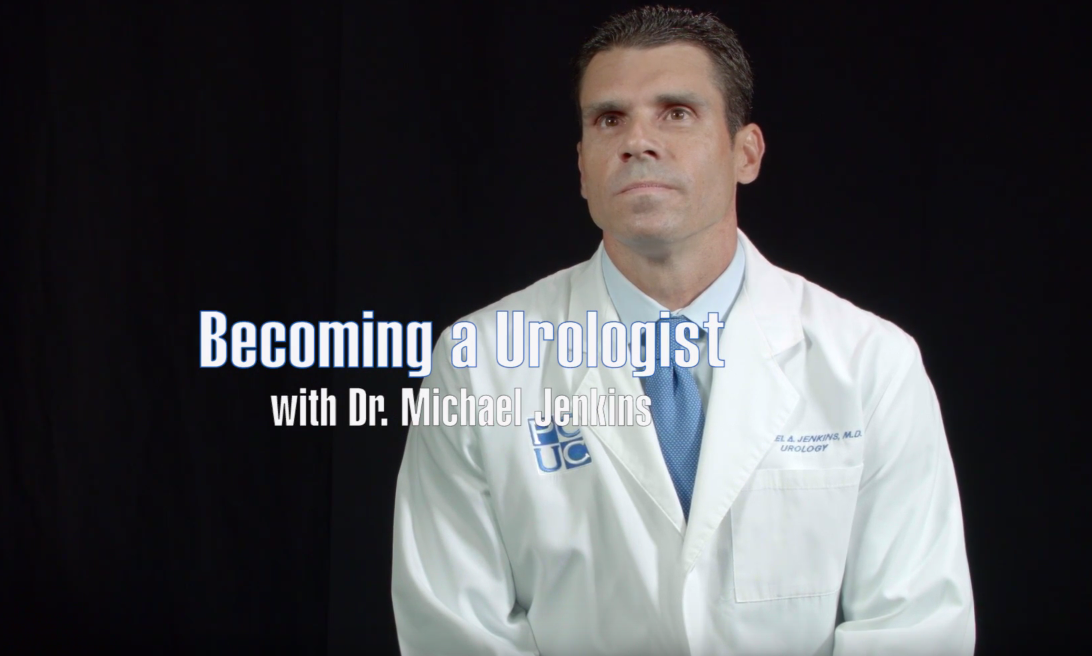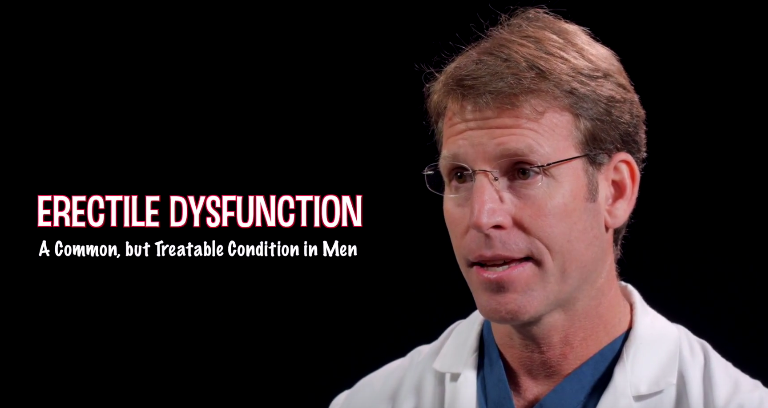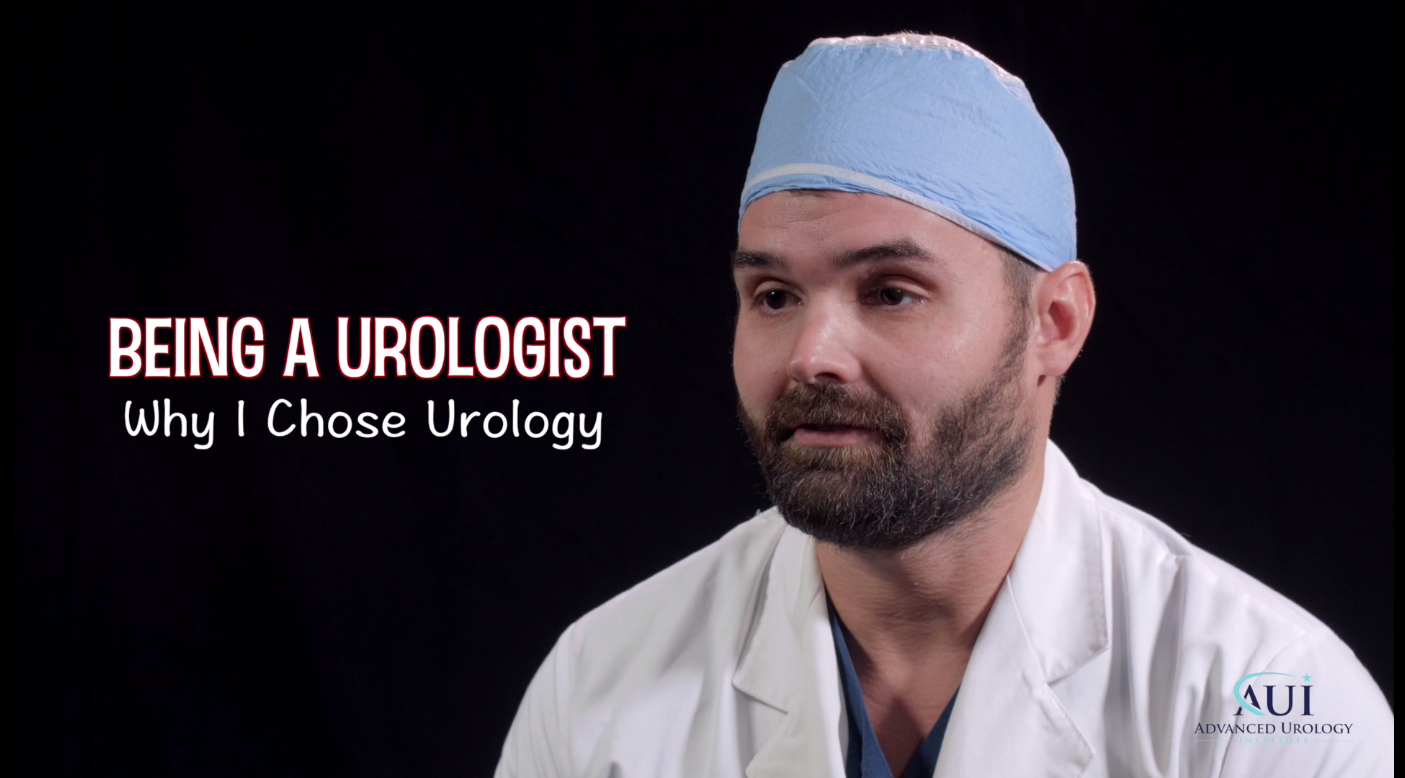Erectile dysfunction (ED), also called impotence, is a man’s inability to achieve or maintain an erection that’s hard or firm enough for sexual intercourse. Occasional ED is quite common among men, particularly during times of severe fatigue or stress. However, frequent erectile dysfunction can be a signal of serious health, relationship or emotional problems and requires treatment.
Major symptoms of erectile dysfunction include:
- Problem getting an erection.
- Diminished interest in sex.
- Difficulty maintaining a firm enough erection for sexual intercourse.
It’s important to speak with your doctor if you are experiencing any of these symptoms, particularly if they last 2 or more months. The doctor will determine if there is an underlying condition to your ED and whether or not treatment is necessary.
Medical history and physical exam
At Advanced Urology Institute, we usually begin with a medical history and physical exam so we can find the reasons for your ED. Erectile dysfunction can be due to stress, fatigue, anxiety, low testosterone, physical problems or other factors. When we take your medical history, we will ask you questions about your health and the symptoms you are experiencing. Then we perform tests to determine whether your symptoms have an underlying cause.
You should expect a physical examination where the doctor listens to your lungs and heart, measures your blood pressure and examines your penis and testicles. We also frequently recommend a rectal exam for checking your prostate. Likewise, urine or blood tests may be necessary to rule out conditions with similar symptoms.
Who needs treatment?
When making a diagnosis for erectile dysfunction, problems such as premature ejaculation and low libido are not considered. We basically focus on your failure to have or maintain a steady erection. Since most men have ED at one point or another in their lives, the most useful factor when determining whether or not to offer treatment is the frequency of your problem. From a medical standpoint, an erectile dysfunction occurring as often as 20 percent of the time isn’t considered a major concern. However, ED that occurs 50 percent or more of the time is likely to have an underlying psychological or physical cause and warrants treatment.
ED medications
For most men, the treatments offered for erectile dysfunction are quite similar. In most cases successful treatment depends on effective treatment of the underlying causes. At times it may even be necessary to use a combination of treatments. At Advanced Urology Institute, we often begin with medications, giving drugs such as Cialis (tadalafil), Stendra (avanafil), Caverject (alprostadil), Viagra (sildenafil), Levitra (verdenafil) or Androderm (testosterone). These drugs increase the blood flow in the penis and will help you to achieve an erection. The fact that some of these drugs now have generic forms means prices have gone down and most men can afford to use them when appropriate.
Pumps and injections
In some cases, treatment for erectile dysfunction may involve the use of vacuum constriction devices (erection pumps). These are mechanical or automatic devices that help men to achieve erection by increasing blood flow to the penis. Basically, an erection pump consists of a cylinder with a pump attached directly to the end of the penis. After the pump has made the penis bigger, a constriction band or ring is attached to the other end of the penis to keep the erection comfortably in place for at least 30 minutes. The main advantage of these devices is that no invasive or surgical procedures are involved. When it’s appropriate, we recommend these devices for our patients and make arrangements so that they are ordered and sent to them.
For some men with erectile dysfunction, we may recommend penile injections. It’s often amusing talking about penile injections with men, but they are very effective in treating ED. With a sharp needle that’s too small to cause much discomfort, medications such as papaverine hydrochloride, prostaglandin E-1 or phentolamine are injected into the penis tissue to stimulate an erection. When used, papaverine injection relaxes muscles of the arterial wall, dilates the vessels and increases blood flow; phentolamine blocks nerve signals for muscle contractions and promotes muscle relaxation; while prostaglandin E-1 relaxes penile muscles resulting in an erection. Once we prescribe any of these penile injections, we show you how the injection is done — the process is simple, not painful, and up to 90 percent of the patients are able to do it on their own after it’s explained to them.
Surgical treatment of erectile dysfunction
If these options don’t work, then we may recommend surgical treatment of erectile dysfunction. Surgery can be used to implant a prosthetic device into the penis that causes an erection; reconstruct penile arteries to increase blood flow and facilitate an erection; or block off the veins in the penis to allow blood to leave the penis, which helps in maintaining an erection. At Advanced Urology Institute, we usually discuss surgery as an option for treating ED with our patients before recommending it to them. We do a lot of penile implants and penile reconstruction operations and offer several other treatments for erectile dysfunction.
Is erectile dysfunction affecting your relationship? At AUI, we offer several effective treatments for the condition, including medications, pumps, penile injections and surgery. Talk with us about your condition and find help in getting it effectively treated. We are committed to providing treatment that restores sexual health and satisfaction to men with erectile dysfunction. For more information on how we treat ED, visit the “Advanced Urology Institute’” site






